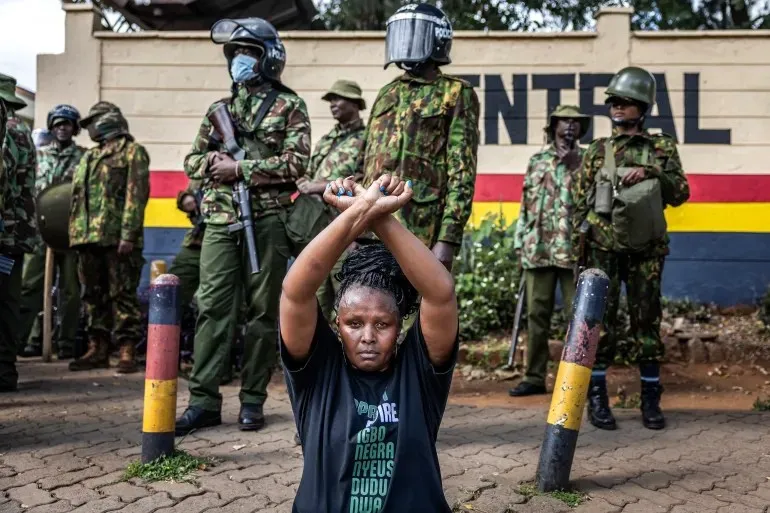News
Amnesty says Kenyan authorities paid online trolls to threaten Gen Z protesters

Kenyan authorities paid organised groups of online trolls to threaten and intimidate young protesters during recent anti government demonstrations, according to a new report by Amnesty International. The human rights organisation says government agencies also used surveillance tools and coordinated disinformation campaigns to target protest organisers throughout the 2024 and 2025 demonstrations, many of which were driven by Gen Z activists using social media to mobilise.
Kenya’s interior minister has denied the claims, saying the government does not approve harassment or violence against citizens. But Amnesty’s findings point to what it describes as a deliberate effort to silence protesters who were raising concerns about tax increases, corruption and rising cases of femicide.
The report explains that young women and LGBT activists were singled out, receiving misogynistic and homophobic messages as well as AI generated sexual images. One activist described receiving threats about her child, saying strangers sent her the child’s name, age and school bus number plate and warned her that harm would come to the child if she continued protesting. She said she had to change her child’s school to protect them.
Amnesty also interviewed a man who claimed he was part of a coordinated online team paid to promote pro government messages and drown out protest related hashtags on the platform X. He said members of the group earned between twenty five thousand and fifty thousand Kenyan shillings per day to post content that shifted online conversation away from the demonstrations.
As part of its research, Amnesty spoke to thirty one young human rights defenders who had taken part in the protests. Nine told the organisation they had received violent threats through platforms including X, TikTok, Facebook and WhatsApp. The report also raises alarm about unlawful surveillance, including allegations that authorities used mobile data to track protest leaders, a claim denied by telecom provider Safaricom.
Alongside the online harassment, Kenyan authorities face accusations of severe violence against protesters on the streets. Rights groups say more than one hundred people were killed during clashes with police across two waves of demonstrations in 2024 and 2025. Protesters and observers documented cases of arbitrary arrests, enforced disappearances and the use of live ammunition. The government has admitted there were instances of excessive force by police but defended security operations in other circumstances.
Amnesty’s Secretary General Agnès Callamard said the report shows widespread and organised efforts to suppress dissent led by young Kenyans. She said the findings confirm that state sponsored online trolls were central to shaping the digital environment, pushing pro government messaging and attempting to dominate Kenya’s trending topics.
Interior Minister Kipchumba Murkomen repeated that the government does not endorse harassment or violence, adding that any officer involved in unlawful conduct will be investigated and held responsible. Amnesty has urged Kenya to end online intimidation, ensure accountability for deaths and injuries during protests and protect the right to peaceful assembly.










